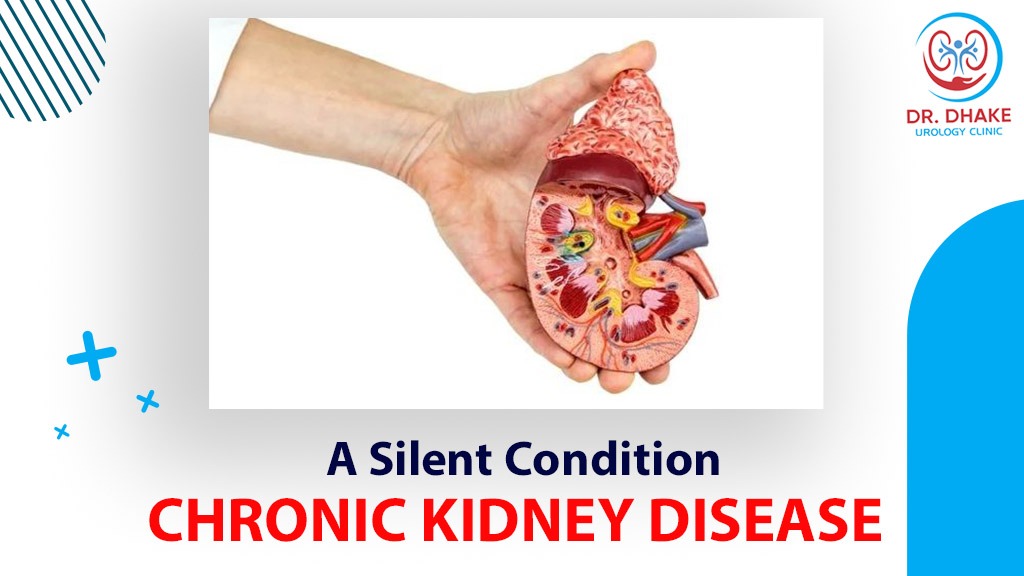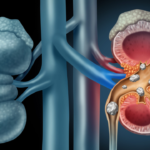
Chronic kidney disease (CKD) is an increasingly prevalent health condition that often goes unnoticed due to its silent and progressive nature. CKD is a progressive disease in which the kidneys are damaged and their ability to function is impaired. This can lead to a buildup of waste products and fluids in the body, and eventually, the need for dialysis or a kidney transplant.
CKD can develop slowly and without any symptoms, which is why it is often referred to as a “silent condition”. Early detection is important in order to delay or prevent the progression of the disease, but as the signs and symptoms can be quite subtle, many people do not realize they have CKD until it is in an advanced stage.
CKD can be a serious and potentially life-threatening condition, but early detection and treatment can help to manage the disease and improve the quality of life for those affected. Educating yourself on the risk factors and signs and symptoms of CKD is the first step towards a healthier future.
Common signs and symptoms of CKD include fatigue, loss of appetite, nausea, swelling of the hands and feet, and difficulty concentrating.
The risk factors for CKD are numerous and include age, high blood pressure, diabetes, heart disease, and a family history of the disease. Many of these risk factors can be managed with lifestyle changes, such as maintaining a healthy weight, exercising regularly, and avoiding smoking and excessive drinking.
In the early stages, treatment may involve lifestyle modifications such as following a low-salt, low-protein diet and taking medications to control high blood pressure and diabetes. In more advanced stages, dialysis or a kidney transplant may be necessary.
Treatment for chronic kidney disease will depend on the severity of the condition. In some cases, lifestyle changes such as reducing alcohol and sodium intake, quitting smoking, and maintaining a healthy weight can help slow the progression of the disease. Medications can also be prescribed to help manage symptoms and lower blood pressure. In more advanced cases, dialysis or a kidney transplant may be necessary.
Diagnosis of CKD is based on a physical examination, blood and urine tests, and imaging tests such as ultrasound or CT scans. Treatment of CKD depends on the stage of the disease and the severity of the symptoms.
Chronic kidney disease is an often silent condition, but it can have serious implications for your health. With regular checkups and screening, it can be caught early, allowing for effective treatment and management of the symptoms. If you have any of the risk factors or symptoms associated with chronic kidney disease, be sure to speak to your doctor.




